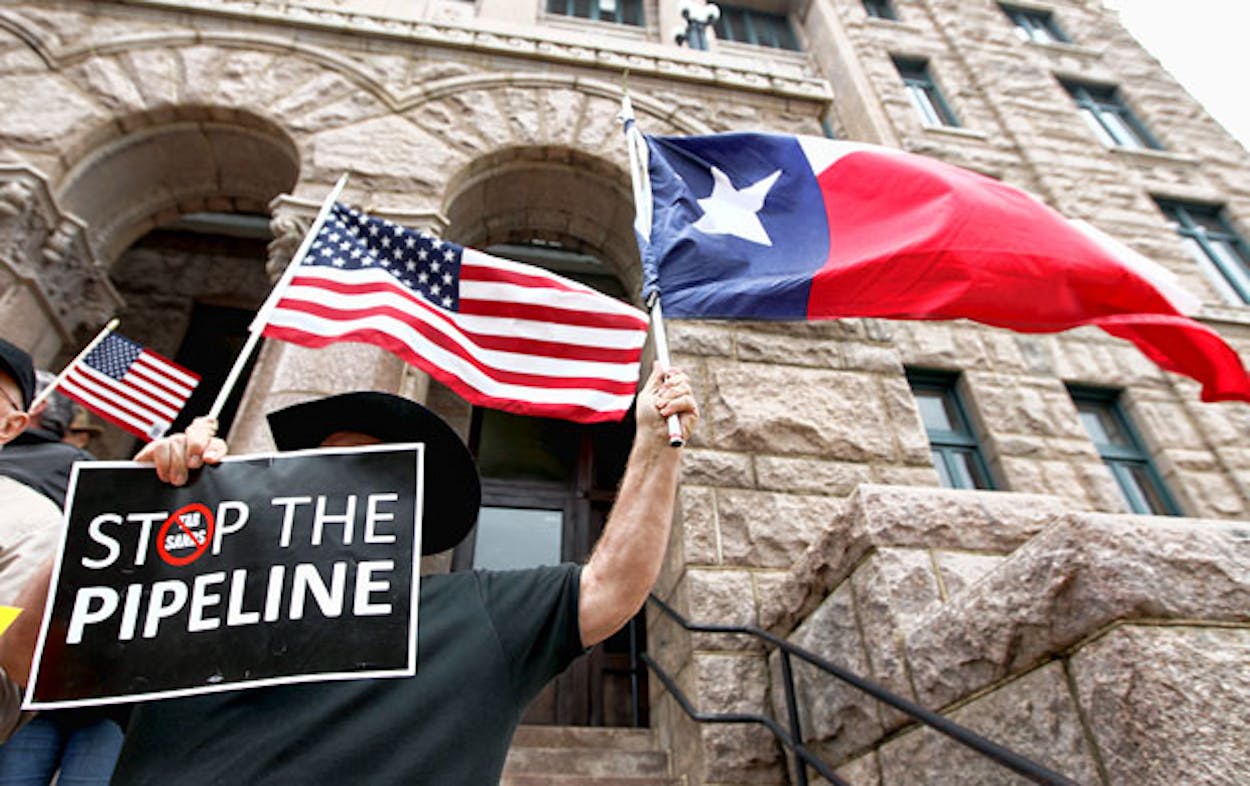In the latest installment of the Keystone XL pipeline saga, TransCanada received a go-ahead for the Gulf Coast section of its project. The Canadian company, which wants to build an oil pipeline stretching from the tar sands of Alberta to Texas refineries, will begin construction of the 485-mile Texas-Oklahoma segment in the following weeks. According to the Fort Worth Star-Telegram, this announcement came after TransCanada received the final of three permits needed from the Army Corps of Engineers.
Although President Barack Obama rejected the broader Keystone XL pipline proposal in January, citing its route over Nebraska’s sensitive Sand Hills region, he has expressed his approval of the Gulf Coast pipeline construction. That same approval is not present across Texas, however—TransCanada is facing opposition from both environmentalists and conservative landowners.
Environmental groups, including the Sierra Club and Friends of the Earth, claim that the tar sands oil is dirtier than most other crudes and will further harm the already polluted Gulf Coast environment. The Star-Telegram reports that Chris Wilson, an organizer with Stop Tarsands Oil Pipelines, further denounced the pipeline. “It appears that President Obama is only too happy to turn up the flow of toxic tar sands through our states, but we’re here to say, ‘Don’t mess with Texas or Oklahoma,” Wilson said in a statement.
Texas farmer Julia Trigg Crawford made national news in February when she rejected TransCanada’s offer to purchase parts of her 600-acre farm for pipeline construction. She cited concerns that the project would pollute a local aquifer, as well as destroy Native American artifacts. However, as Megan Towey from CBS News reported, the story did not end there.
Unfazed, TransCanada condemned 30-acres of meadowland on Crawford’s property and seized it under eminent domain. Crawford decided to sue TransCanada, drawing support from a 2011 Texas Supreme Court decision that brought into doubt the constitutionality of a private company using eminent domain proceedings against a landowner. Crawford won a temporary restraining order from a Paris, Texas, judge who ordered the company not to touch her land. But that restraining order expired on [Feb. 24] and will not be extended.
Now that the pipeline has received the necessary permits, Crawford has renewed her opposition. A self-proclaimed “farmer locked in legal battle,” she and other landowners are contesting the construction through the Texas House Committee for Land and Resource Management, the Texas Tribune reports.
TransCanada retaliated, asserting that the pipeline they are installing is a “public good,” and will provide approximately 4,000 new American jobs. Russ Girling, the company’s president and chief executive, said in a statement, “I continue to believe Americans would prefer to consume their crude oil from domestic producers and from Canada rather than higher-priced oil from countries that do not share American values.”






